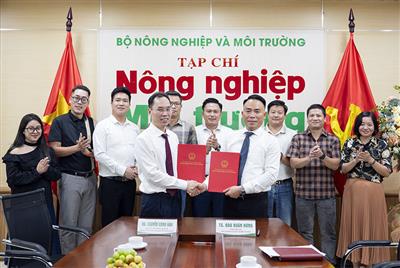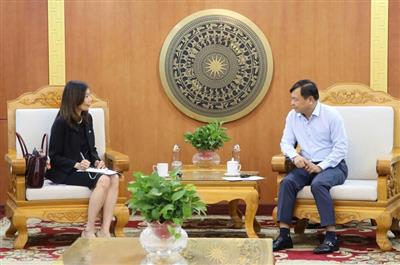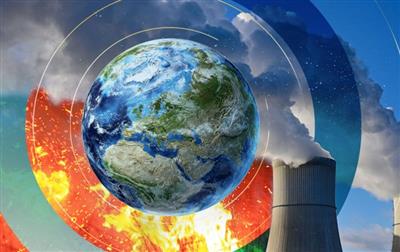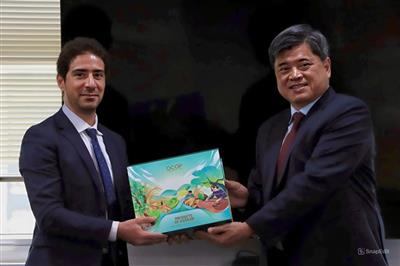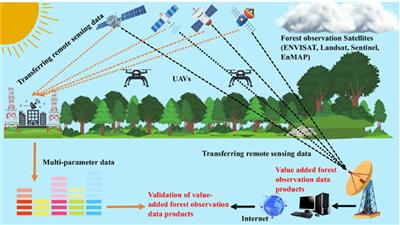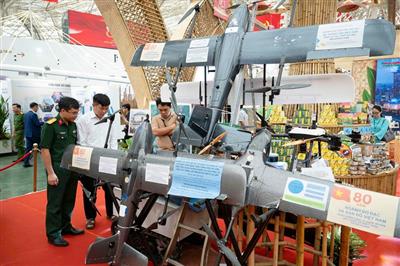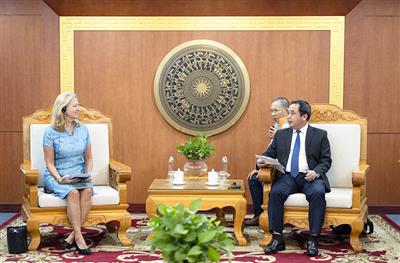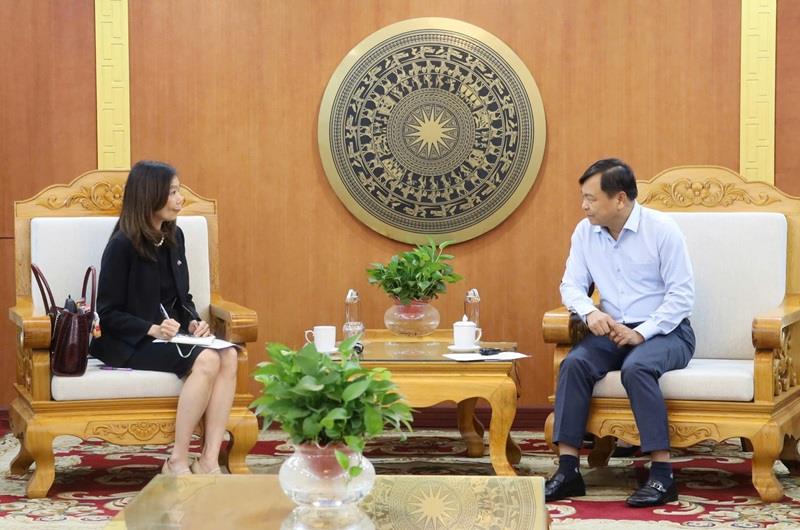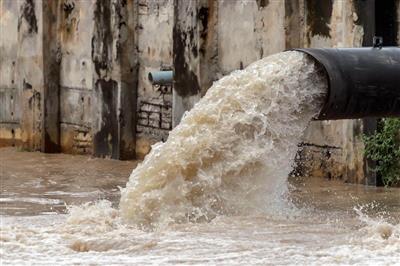
Consultation workshop on technical guidelines on environmental self-audit implementation of production, business and service establishments
25/03/2024TN&MTOn March 21, in Hanoi, a consultation workshop was held by the Vietnam Institute of Environmental, Marine, and Island Sciences (VEMSI) to discuss the draft technical guidelines for environmental self-auditing implementation of production, business and service establishments.
The workshop was attended by Associate Professor, Dr. Phan Van Loi, Deputy Director of VEMSI; Dr. Dao Xuan Hung, Editor-in-Chief of the Natural Resources and Environment Magazine, Mr. Yamamoto Kyota, Deputy Director of the Environmental Management Promotion Office (Environmental Policy and Industrial Science and Technology Policy Bureau under the Ministry of Economy, Trade and Industry (METI) of Japan), who participated online; Mr. Adachi Ichiro - Environmental Management Advisor of JICA under the Ministry of Natural Resources and Environment, and Ms. Abe Fumika - Representative of the JICA Office in Vietnam; along with representatives from various ministries, departments, universities, and environmental protection agencies from some northern provinces.

Associate Professor, Dr. Phan Van Loi, Deputy Director of VEMSI delivered the opening speech at the workshop.
In recent years, alongside the conventional environmental management tools widely embraced, environmental auditing has been recognized as an effective mechanism to bolster the environmental management efforts of production, business, and service establishments. Furthermore, it serves as a crucial conduit of information for governmental environmental management agencies, facilitating their oversight and monitoring responsibilities concerning environmental matters.
In its early stages, environmental auditing was predominantly centered around evaluating establishments' adherence to legal statutes and regulations concerning environmental preservation. However, as environmental challenges have grown in complexity and scope, the practice of environmental auditing has undergone a transformation, encompassing a wide array of methodologies, such as: energy audits, carbon footprint assessments, raw material evaluations, transportation analyses, and impact assessments. Such diversified approaches provide production, business, and service entities with enhanced tools to effectively manage environmental considerations within their premises.

The workshop saw vibrant discussions among the participants.
In recent years, the focus on environmental auditing in Vietnam has seen research conducted at various research institutes and universities, along with pilot implementations at select industrial production facilities. However, these efforts have been somewhat isolated, lacking cohesion, consensus, and facing several challenges due to the absence of specific guidelines for production, business, and service establishments. Recognizing the importance of integrating environmental auditing content as a tool for environmental management, detailed provisions regarding environmental auditing have been outlined in Article 74 of the 2020 Environmental Protection Law (EPL). This represents the first instance where such detailed content has been enshrined in the EPL. This legislative development underscores the increasing recognition of environmental auditing as a prevailing trend and guiding principle in the realm of environmental management for production, business, and service establishments in Vietnam in the foreseeable future.
The development and promulgation of the “Technical guidelines on environmental self-audit implementation of production, business and service establishments” are aimed at providing a comprehensive overview of the execution process, content, and methodologies. This is to guide production, business, and service establishments in proactively researching, understanding, and conducting environmental audits, with the objective of widespread application of environmental audit tools in the near future.

Ms. Abe Fumika - Representative of JICA Office in Vietnam
Representing the JICA Office in Vietnam, Ms. Abe Fumika underscored the significance of pollution management and control systems in accrediting auditors with the requisite expertise to conduct environmental audits. JICA remains confident that the results of this collaborative relationship will yield numerous benefits for Vietnam as it endeavors to enhance the quality of domestic auditing in the future.
In practice, the release of environmental auditing guidelines will represent a significant milestone in harnessing the advancements and expertise we have achieved in our environmental development and collaboration efforts. JICA also views cooperation in environmental initiatives as a vital and indispensable area, pledging to intensify collaboration with Vietnam in climate change mitigation measures.

Mr. Han Tran Viet (representing VEMSI) presented the technical guidelines documents.
During the event, Mr. Han Tran Viet, representing VEMSI, unveiled the draft technical guidelines for conducting environmental self-audits at production, business, and service facilities. Beyond outlining the fundamentals of environmental auditing, the document provides comprehensive instructions on the self-assessment process applicable to such establishments. This encompasses templates for self-reporting on environmental audit activities, along with guidance on checklists for evaluating compliance with environmental regulations as stipulated in the 2020 Environmental Protection Law and associated directives.
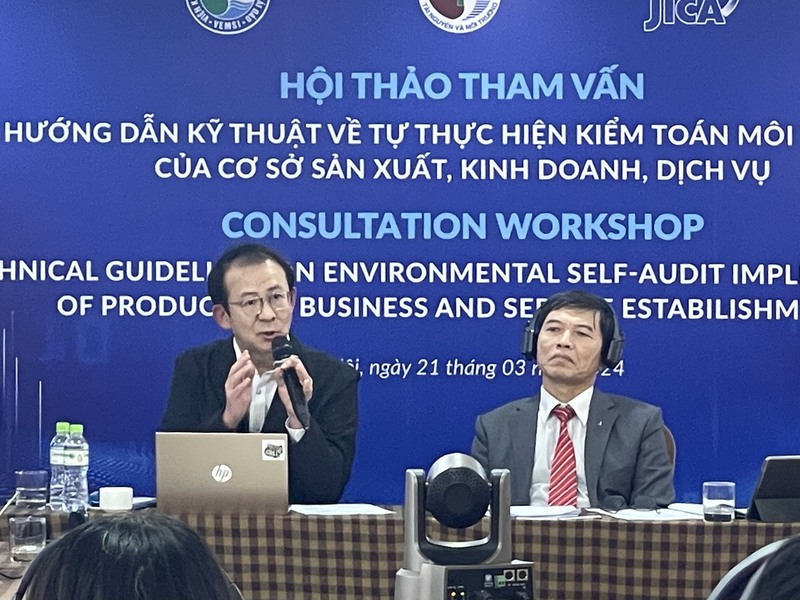
Mr. Adachi Ichiro, Environmental Management Advisor at JICA in the Ministry of Natural Resources and Environment, delivered a speech at the workshop.
Based on insights from Japan, Mr. Adachi Ichiro, Environmental Management Advisor at JICA under the Ministry of Natural Resources and Environment, presented the Pollution Control Manager (PCM) system and the strategies Japan has implemented. This encompassed the primary elements of pollution prevention measures, Japan's pollution prevention system, and collaborative initiatives regarding pollution prevention in Vietnam.
Based on her involvement in advising on Health, Safety, and Environment (HSE) matters within various enterprises, particularly Foreign Direct Investment (FDI) entities, Dr. Ngo Kim Tu, Deputy Head of the Labor Organization Department at the University of Labor and Social Affairs, stressed the importance of such consultations for HSE departments within businesses. She highlighted their significance, particularly for FDI companies, which bear the responsibility of advising business leaders on environmental protection and compliance with legal regulations.
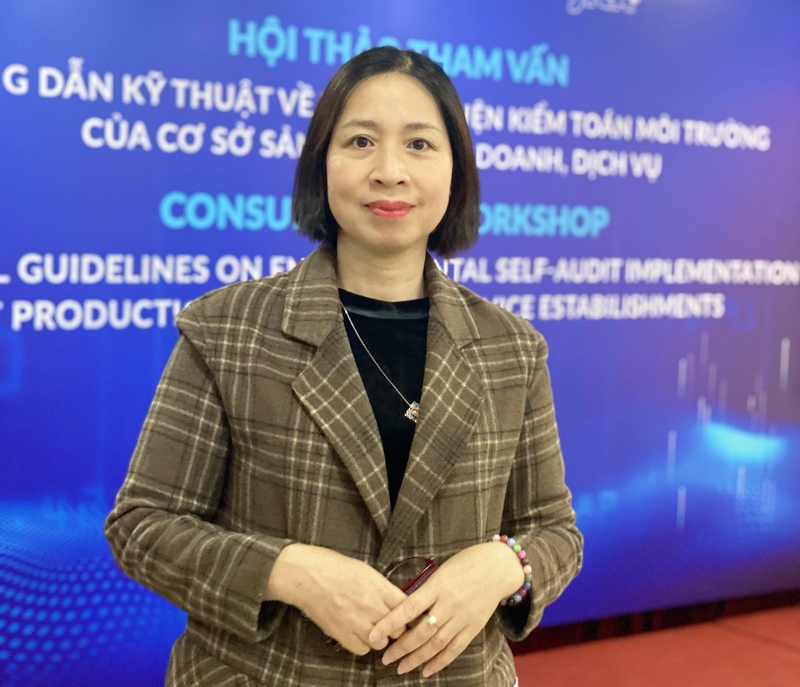
Dr. Ngo Kim Tu, Deputy Head of the Labor Organization Department at the University of Labor and Social Affairs
Sharing insights from the Labor - Invalids and Social Affairs sector, Ms. Tu noted that the Ministry of Labor has advised the Government to issue several decrees pertaining to occupational safety and health trainers. Building on this groundwork, the Ministry of Labor - Invalids and Social Affairs has also established regulations regarding standards for occupational safety and health trainers. This experience underscores the necessity of clearly delineating standards for future training programs aimed at cultivating experts in environmental auditing across production, business, and service sectors.
"Nevertheless, businesses consistently pursue profit, and as such, we are eager to ensure that while these guidelines serve an incentivizing purpose, they also incorporate tangible benefits, including economic gains, beyond mere legal compliance," emphasized Ms. Tu.
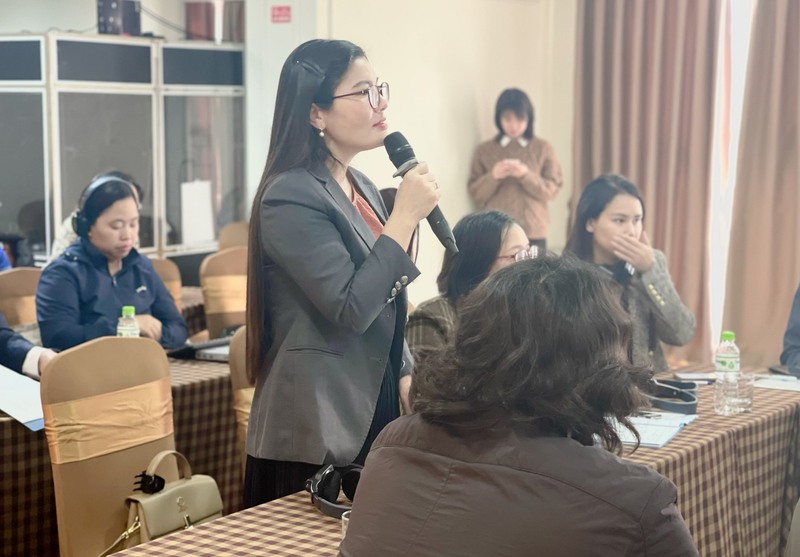
Ms. Do Thi Huong, Deputy Chief of the Environmental Protection Sub-department in Hai Phong City
Sharing the same perspective, Ms. Do Thi Huong, Deputy Chief of the Environmental Protection Sub-department in Hai Phong City, also believed that providing technical guidelines for environmental self-auditing activities at production, business, and service facilities brings significant benefits to enterprises. Therefore, Ms. Huong also aspired to highlight the benefits for businesses when implementing these guidelines.
"Most businesses still prioritize profit when undertaking this task, so we must emphasize the benefits that businesses will gain first. As stipulated in Article 74 of the 2020 Environmental Protection Law, paragraph 3 clearly states that it only encourages implementation. Therefore, to integrate environmental auditing with the circular economy, we must identify the benefits for businesses," said Ms. Huong.
Ms. Do Thi Huong advocated for specific regulations to determine which businesses are mandated to appoint environmental officers, rather than imposing this requirement on all production, business, and service establishments. According to her, during the initial auditing phase, a designated team, including environmental officers, must be established as per regulations. Ms. Hương illustrated this with the example of businesses with significant emissions or exhaust gases, highlighting the necessity of appointing environmental officers. However, for other businesses, she suggested encouragement rather than mandatory enforcement. In her perspective, there should be no limitation on the target group, as all businesses contribute positively.
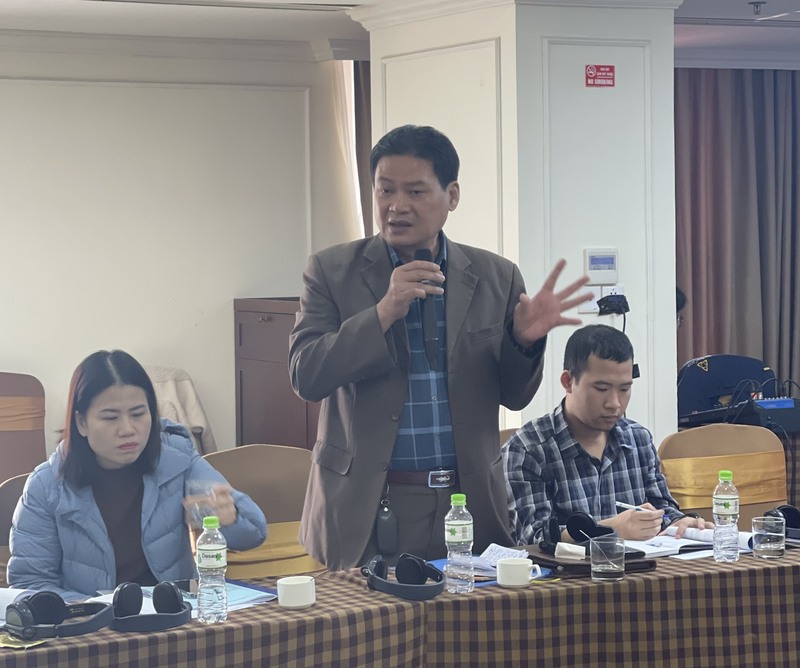
Expert Hoang Minh Son
Expert Hoang Minh Son emphasized the paramount importance of this document, not only for businesses but also for state regulatory agencies. Conducting environmental audits serves as a cornerstone for enhancing environmental protection efforts, particularly in the auditing process itself. Regarding audit metrics, Mr. Son suggested focusing on fundamental parameters. However, he warned that without clear guidelines in the technical manual for self-auditing environmental practices, businesses may not grasp the benefits of such initiatives.
Associate Professor, Dr. Phan Van Loi, Deputy Director of the Institute of Environmental Science, Marine, and Island Studies (VEMSI), has urged the research team to meticulously document the following enhancements: clearly delineate the provisions of environmental auditing outlined in specific articles, clauses, and provisions of the Environmental Protection Law within the document; conduct audits on imported raw materials, fuels, chemicals, and waste materials; audit waste management practices, referred to as Waste Management; provide comprehensive guidelines for pollution auditing, collectively termed as Guidelines for Auditing Compliance with Environmental Protection Law Regulations.
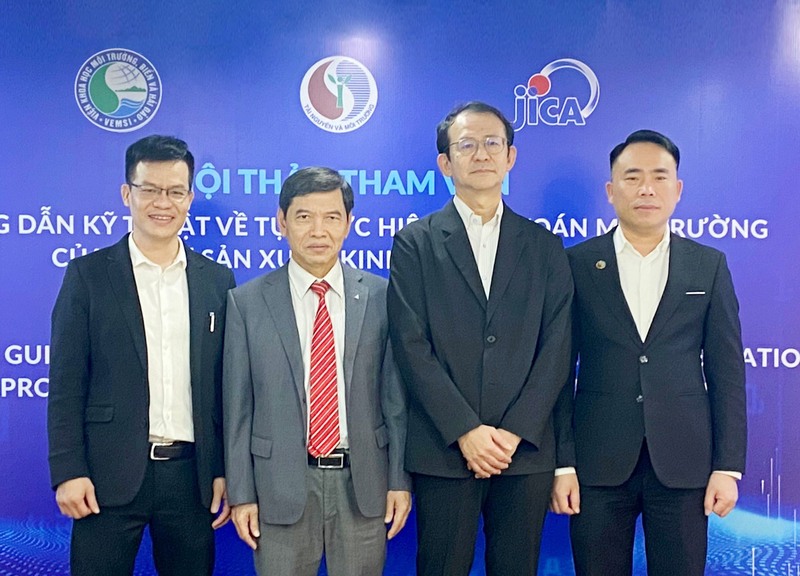
Mr. Han Tran Viet (representing VEMSI), Associate Professor, Dr. Phan Van Loi; Mr. Adachi Ichiro; Dr. Dao Xuan Hung.
Include an appendix detailing the legal obligations that businesses must comply with throughout the process of planning and executing their operations (from the initial Environmental Impact Assessment stage to the commencement of factory operations).
Moreover, additional insights from presenters were directed towards two principal themes: lauding the importance of this documentation and providing suggestions to refine it and related matters. Of particular note were recommendations to elucidate further the advantages of environmental safeguarding for enterprises. Acknowledging the vast and intricate landscape of environmental auditing, it was proposed that the current materials should continue to issue specific directives on various focal areas such as auditing within the Textile, Livestock, Chemical, and Petroleum sectors. The recommendations also stressed the necessity for a dedicated section delineating the role of governmental environmental management authorities.
After numerous hours of collaboration, dialogue, and consultation encompassing both theoretical frameworks and practical insights, the workshop has amassed a treasure trove of invaluable feedback. The organizing committee and document drafting team have meticulously documented and integrated the insights and information contributed by workshop attendees to enhance and enrich the document's value even further.
Thu Huyen




